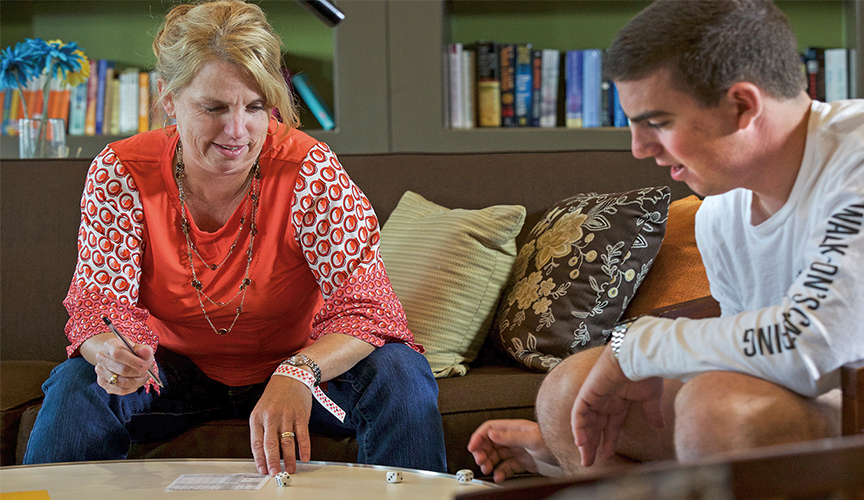Jacob's Journey

Eighteen-year old Jacob Meek is a fighter, a teen for whom epilepsy has been a constant adversary.
Jacob’s also an entrepreneur, a smart go-getter who formed his own corporation for his pressure washing business in Baton Rouge, La.
With that business-focused kind of mindset, it’s no wonder that the teenage businessman notices the cost of a hotel night – and worries about his parents having to spend thousands of dollars on their frequent trips to Memphis and Le Bonheur Children’s Hospital for his treatment.
“With a medical rate, the hotel is still $160 a night, which would be insane to spend for six or seven nights,” says Jacob.
Jacob was born with a non-cancerous brain lesion, and his mom, Tiffany, describes his journey as a rollercoaster ride. From depth electrodes to a resection the affected brain tissue, to years of seizures, medications, and additional neurosurgeries, the Meeks family routinely traveled to hospitals outside of Baton Rouge for Jacob’s treatment. Jacob was first treated in Houston under the care of neurologist Dr. James Wheless. When Dr. Wheless came to Le Bonheur in 2006 as the co-director of the Neuroscience Institute and Le Bonheur Comprehensive Epilepsy Program, the Meeks followed.
Thanks to FedExFamilyHouse, neither Jacob nor his parents have to worry about the expense of hotels and meals during his treatment at Le Bonheur.
When they first started coming to Le Bonheur in 2006, Tiffany often traveled alone – and FedExFamilyHouse was not yet open. “We always wanted a safe place, some place that we could find food close by, that we could be close to the hospital for appointments,” says Tiffany. “If we were admitted into the hospital, it was difficult when you had a hotel, living out of a hotel room.”
At FedExFamilyHouse the family, including Jacob’s brother and dad, can be together, make home-cooked meals, and help Jacob through his treatments. “The things we normally have to worry about are eliminated. We can focus all of our attention on Jacob’s well-being and his recovery.” And a stay at FedExFamilyHouse gives Jacob peace of mind, too. “When we stay here, that’s one less burden that he has to even put into his mind,” says Tiffany.
“I love the kitchen at FedExFamilyHouse, because my mom is able to cook meals,” says Jacob. “The people from the community that come to cook meals is also a great, generous gift from those organizations.”
For the doctors at Le Bonheur, FedExFamilyHouse plays an important role in helping parents reduce stress during their child’s hospitalization and treatment. “If they’re rested, they’re
feeling comfortable, and they’re going to do a better job helping us take care of their kids – and their kids are going to get better, quicker,” says Dr. Wheless.
For Tiffany, FedExFamilyHouse is both home-away-from-home and community.
“You feel like you have a family outside of your own, immediate family. Between the staff, the other families that you meet … There’s a sense of a bond that’s formed,” she says. “It’s very, very special, because you feel like you’re not alone in the challenges you’re incurring.”
Tiffany says when she’s at the house, she’s reminded that it takes a community to make FedExFamilyHouse possible.
“When you walk around here, and you see plaques on the wall about ‘this room is sponsored by’, and there’s a certain company, or FedEx Pilot Wives Association, or a particular family, an organization – it’s very empowering to know that so many people who don’t even know us care enough to give to support this place.”
Jacob sees the impact of the generosity of FedExFamilyHouse donors on every visit, from the community-sponsored meals to the array of games and activities. “This is a unique experience,” he says. “I would like to thank the donors that give money to the FedExFamilyHouse.”
Help us provide the best care for kids.
Le Bonheur Children's Hospital depends on the generosity of friends like you to help us serve 250,000 children each year, regardless of their family’s ability to pay. Every gift helps us improve the lives of children.
Donate Now












